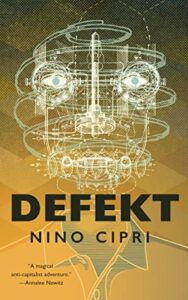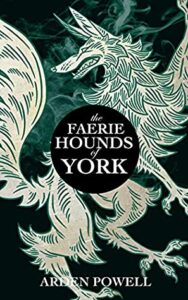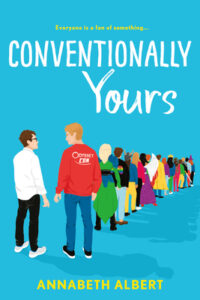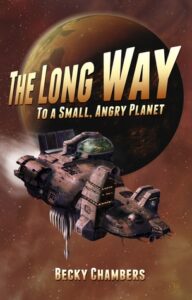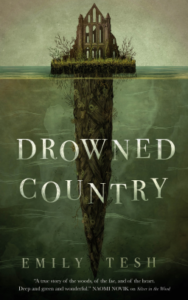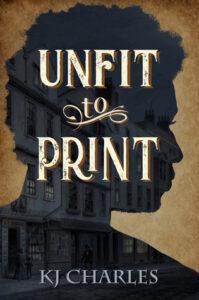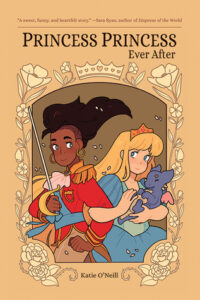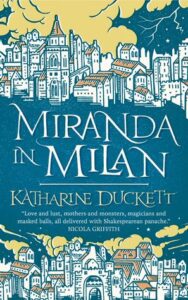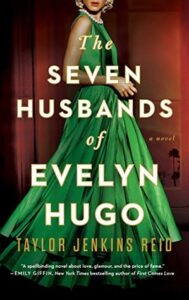 The Seven Husbands of Evelyn Hugo, Taylor Jenkins Reid
The Seven Husbands of Evelyn Hugo, Taylor Jenkins Reid
Whoa. I did not expect to be so wildly sucked into this book. I mean, a part of me might have expected it: it’s the kind of gossipy, dramatic book with Big Secrets that is designed to get its hooks in, and I’m as susceptible as anyone else.
Evelyn Hugo is a fictional Hollywood star. Think Elizabeth Taylor and Rita Hayworth. Her career is over now, but she’s a legend. She’s been enticing and entrancing people for years… and she wants rookie journalist Monique to write her biography. She’s going to tell her everything, under just a few conditions. Evelyn Hugo wants to tell the truth, even when it doesn’t paint her in the best light. And she’ll answer Monique’s questions in her own time.
I didn’t know much about this book until someone bought it for me in a Secret Santa book exchange, so I didn’t know what I was getting into… and it’s almost better if you don’t, if you’re into that tantalising question of what exactly Evelyn Hugo’s deal is. It doesn’t take long to get part of the answer, but if you want to be totally surprised, ignore my review and everyone else’s and go in completely fresh.
If those who don’t want spoilers have bailed out…
Let’s talk about the queer content. The big secret of Evelyn Hugo’s life turns out to be that she was bisexual and in love with another film star. Husbands came and went, with several of her domestic arrangements just providing cover for an on-again, off-again relationship. I don’t know if Reid is bisexual or how she identifies, but Evelyn’s voice and experience of bisexuality rang generally true to me as a queer person. The Hollywood setting provides a backdrop to Evelyn’s yearning and messing up and trying again when it comes to her secretive affairs with women. Or mostly just one woman, which is the bit that maybe rings less true for most people: Evelyn has sex with men frequently, and falls in love with some of them too, but when it comes to women we only actually see one attraction, one love.
Now that kind of rings true for me with some of the things she says early on about what sex and attraction mean to her. She has sex in a lot of cases because it’ll get her what she wants, not out of genuine connection; she seems to find real passion only once she’s made connections, once there’s some kind of relationship, and she only finds that with another woman once. She only lets herself find it once, maybe. But it still seemed a little odd.
When it comes to the relationship itself, the beats are familiar and not at all surprising: we can’t let anyone find out! We have to hide! We have to fake it with men! Oops, one of us actually slept with the man and now she’s pregnant! Break up! Make up! Secretttsss! It was a fun read, but I’m really side-eyeing anyone who calls it “groundbreaking”, especially when it comes to the queer content. It rings true, but it’s nothing we haven’t heard before. I’d have been more impressed if the two of them made a go of it without breaking up constantly, maybe?
There is also a whole racial side to the book when it comes to Monique Grant, who defines herself as “biracial”, and to Evelyn, who is Cuban and completely hides it to become a blonde bombshell. I don’t know what Reid’s experience is there, but to me these portrayals felt clunky. Monique literally says she “felt like two halves”; it feels like a cliché to me. There’s one moment that rings maybe a little more true, and that’s when Evelyn’s maid speaks Spanish in front of her totally without realising she can understand, and she realises she’s buried her Cuban identity so deep it’s disappeared… but this is not really a story I feel very familiar with and mostly I feel unqualified to comment on whether it’s representative of real experiences.
In both the sexuality and the racial content, though, it feels like accounts I’ve read before, like it’s been cut out with the same cookie-cutters as a whole bunch of other stories. There’s a reason the cookie-cutters are that shape, but the shapes produced are 2D.
I don’t know if that all makes sense, but it’s how I felt about the book.
The best thing about the book for me was Harry Cameron. He was Evelyn’s best friend, and there is something real and true in the way they protected each other, made things work for one another, made a family together. I would have loved this theme to be stronger — that there was no passion between them, but he was her true partner who stuck with her through everything, who made things work even when it was hard. Evelyn’s female partner and what they did for each other paled for me compared to the truth of two queer people sticking together to make things work, and being a family even when it doesn’t conform.
Evelyn herself… she’s a strong character, and there’s a lot to like and hate about her. Again, I wouldn’t say she’s a particularly groundbreaking character, and I called most of the twists and turns of her motivations and manipulations.
In the end, it was a fun read. I tore right through it. I don’t think it was the best book in the world and I wouldn’t call it profound, despite the evident effort to make us believe in a love that transcended Evelyn’s seven husbands, the real love of her life. The answer should’ve been Harry Cameron, and for me, it missed its mark in downplaying his importance.
It’s enormously fun, though.
Rating: 3/5
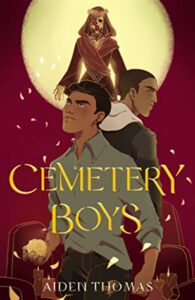 Cemetery Boys, Aidan Thomas
Cemetery Boys, Aidan Thomas
